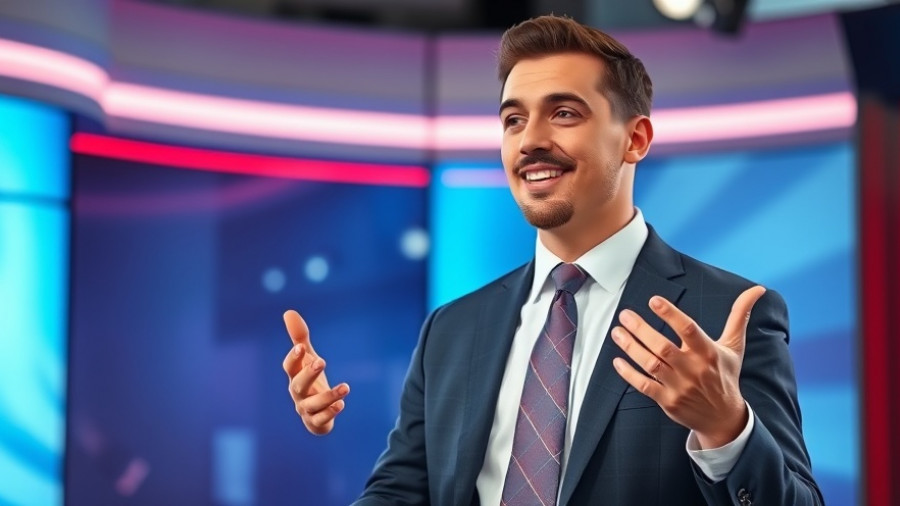
Mamdani's Controversial Stance on Hamas
As the race for New York City's mayor approaches a pivotal turn, candidate Zohran Mamdani finds himself at the center of controversy over his positions regarding Hamas. During a recent debate, Mamdani struggled to respond affirmatively when asked if he believes Hamas should disarm, creating a stir not just in New York but across the nation. His equivocation raises critical questions not only about his foreign policy stance but also about his suitability as a mayor for a diverse city steeped in its own complex political landscape.
Political Pressures and Backtracking
In an earlier interview with Fox News, Mamdani appeared hesitant to address direct questions related to Hamas, which led to significant pushback from both his political opponents and potential supporters. However, during the recent debate, he shifted his tone, claiming he believes that all parties, including Hamas, should lay down their arms. This backtracking reflects a growing recognition of the nuanced demands of the electorate, especially in a city where public opinion is as diverse as its population.
The Bigger Picture: Politics and Public Sentiment
Mamdani's fluctuating responses come at a time when New Yorkers are increasingly concerned about their city's role in national and global issues. Voter sentiment is shifting, with many demanding clarity on candidates' positions regarding justice, safety, and international affairs. His stance not only affects his campaign but also has wider implications for the discourse around U.S.-Middle East relations. As he campaigns on a platform of justice, how he reconciles his views with the realities of governance in a metropolitan area will be closely scrutinized.
Comparative Perspectives: Lessons from Other City Candidates
In this complex political environment, Mamdani is not alone in his challenges. Other candidates in the mayoral race are also grappling with how to balance local concerns with international contexts. Former New York Governor Andrew Cuomo, for instance, faced criticism for his historical ties to Israeli leadership, demonstrating that while Mamdani's stance may be unconventional, navigating international politics from a local office remains a formidable challenge for any candidate.
Implications of Mamdani’s Position
The implications of Mamdani's position extend beyond elective office. They resonate with a broader audience, including young progressives who are increasingly demanding that their leaders take firm stances on global affairs. However, the challenge lies in translating these ideals into practical governance. As political narratives evolve, the ability to articulate a balanced, principled stance that reflects the needs and values of constituents will be key to winning hearts and minds.
Future Outlook: What's Next for New Yorkers?
As the New York mayoral race tightens, the positions taken by candidates like Mamdani will play a central role in shaping voter decisions. His ability to clearly communicate his stance on Hamas, alongside pressing local issues like affordable housing and public safety, will determine his trajectory in the upcoming election. For voters in Philadelphia and beyond, the developments in New York might provide insights into how similar urban areas confront complex political issues.
Mamdani invites a broader discussion about the power dynamics of politics, the moral responsibilities of leaders, and the expectations of the electorate. As he navigates the critique, it remains essential for him to align his campaign with the aspirations of those he seeks to represent.
With the election drawing near, it is crucial for voters to engage with candidate positions seriously. Understanding how these views align with their personal and communal values can lead to more informed decisions at the ballot box. As discussions around international and local governance intensify, candidates must bridge the gap between rhetoric and actionable policy.
For those who want a deep dive into the evolving narrative of New York's political landscape, stay informed and participate in discussions that matter. Your voice counts in shaping the future of leadership.
 Add Row
Add Row  Add
Add 




Write A Comment